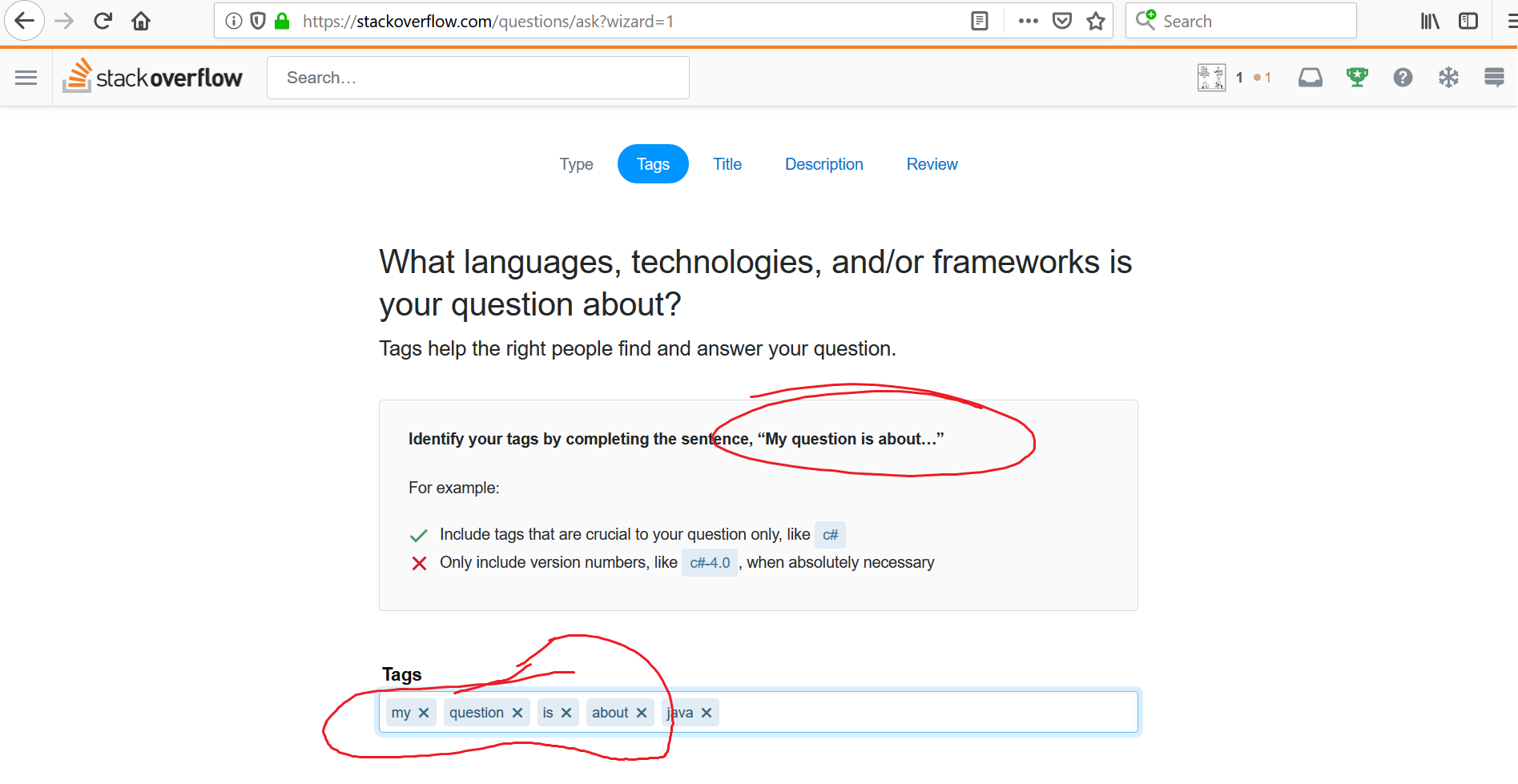I'm all for it being out in the wild for testing. The team has managed to implement a whole lot of the features from the original announcement's answers.
From what I've looked at so far, here are my reactions:
Type:
Great way to start weeding out the questions that belong on other sites. It's clear, and it isn't overly biased towards debugging questions.
Tags:
The example of how to think about what your question is about is good. Hopefully won't get people typing the full "My question is about java" into the tags box though; perhaps if someone misunderstands and types the phrase as written, it can be stripped off the front of their potential tags?
Description:
Thank you for giving an example that is more of a How To and less of a debugging question. In the Background section, I think it would help to include the word research, to help drive home the point that users are expected to actually do research, not just explain where they got stuck and stopped trying. "Provide background and share the research you've done to answer your question already, including what you have already tried." I say this because if someone wants to dump their homework question, "Sally wants to get the names of all people who meet x conditions between 3 tables," a person can say that's the background and share a half hearted attempt without ever researching their issue, and seeing as how many current questions are poor due to lack of research, I think we should err on the side of bludgeoning people over the head with the Do More Research mantra.
In the Show Your Code section, does it come up with a guide box that explains what an MCVE is? If not, I highly recommend that gets explained at least briefly, with a link to the full MCVE page.
Overall it's looking really good. I hope it has some of the effect we're looking for. One last thing: how do we plan on measuring the efficacy of the wizard?

